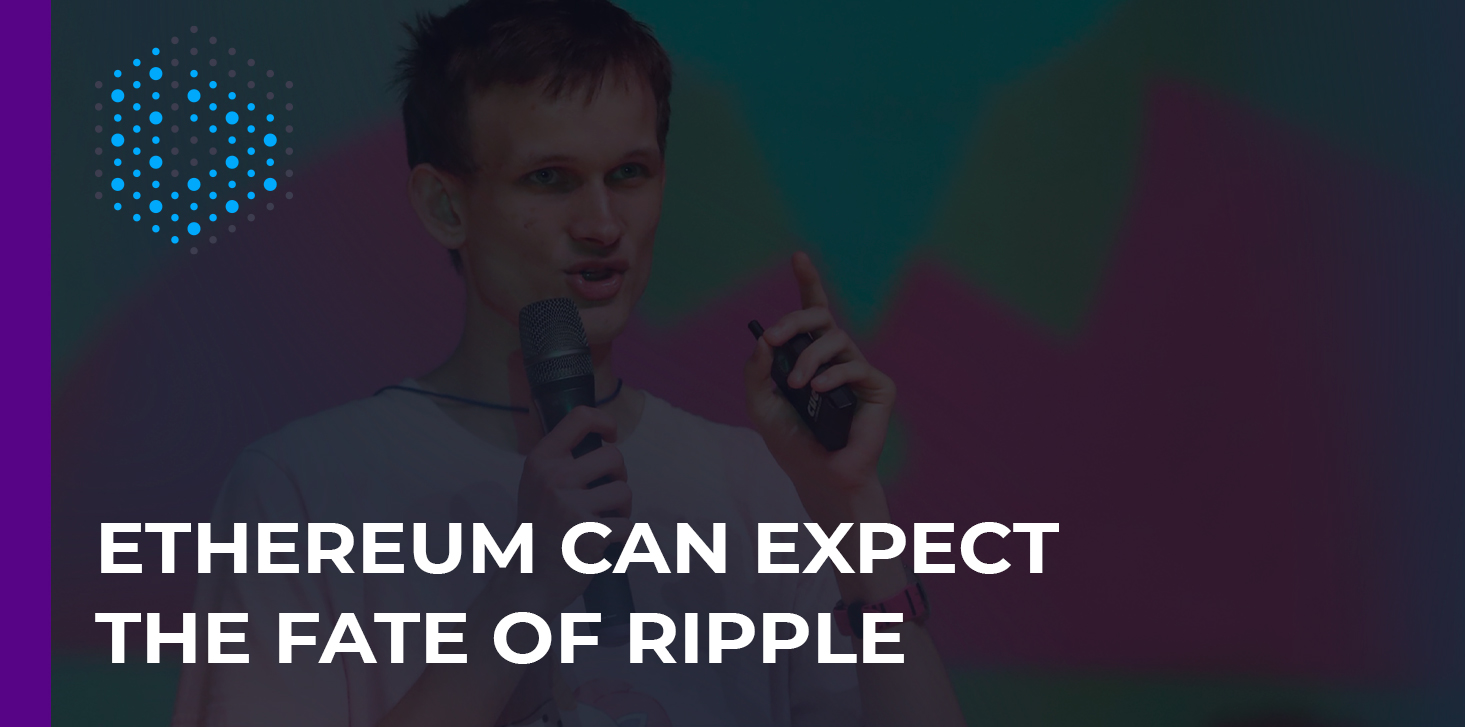Ethereum’s Vitalik Buterin Trolls Ripple, but will ETH 2.0 be next on the SEC’s List?
As the price of XRP continues to fall, dropping 40% on leading exchanges following the US SEC’s lawsuit against Ripple, Ethereum founder Vitalik Buterin appears to be enjoying the show.
Ethereum can expect the fate of Ripple
The U.S. Securities and Exchange Commission (SEC) has accused Ripple of selling its XRP token as unregistered securities. As a result, the XRP token is excluded from the lists of exchanges.
Most of the XRP cryptocurrency is controlled by Ripple Labs, and 100 billion tokens were created in one go, they are not mined incrementally like Bitcoin. Ripple owns the vast majority of the tokens, and Garlinghouse and founder Larsen own large cryptocurrency assets themselves, leading many to view XRP more as a stake in the company than as a cryptocurrency.
XRP has long been criticized by the SEC and a large number of the crypto community for its lack of decentralization. In the past, the Commission has ruled that both Bitcoin and Ethereum are not securities, since these cryptocurrencies are not centrally controlled by any person or company. Instead, the regulator treats Ethereum and Bitcoin as commodities.
In a rebuttal to the allegations made by the agency, Ripple claims that XRP is actually much more decentralized than Bitcoin and Ethereum. Ripple also accuses the SEC of bias against BTC and ETH, which it claims are “controlled by China” due to the fact that most of the mining takes place in China.
Ethereum founder Vitalik Buterin disagreed with this comment and tweeted a response:
“Ripple is completely out of its mind. The statement about the discrepancy between their shitcoin classification-securities due to the fact that Bitcoin and Ethereum are under the control of China-well, this is generally a gloom”.
Switching to the Proof-of-Stake ETH 2.0 network can change everything
Currently, the SEC treats Ether as a commodity, not as a security. However, due to the network’s transition from Proof-of-Work consensus to pos, ETH 2.0 may again cause dissatisfaction with the regulator.
The previous Proof of Work (PoW) block verification method was useful in eliminating SEC control. The basis for the security assessment, called the Howey test, argued that decentralized mining, such as Bitcoin and Ethereum1. 0, gives reasons not to consider them securities.
Proof of Stake significantly changes the game. RoS authentication on the network, in turn, creates a profit-based system that effectively connects owners with returns. From almost any angle, PoS systems certainly meet the standard safety classification of the regulator.
In fact, the issue was raised specifically last year in an interview with the Commodities and Futures Commission (CFTC), Chairman Heath Tarbert in November 2019. The CFTC chairman questioned the future legal status of Ethereum 2.0 as a commodity, with regard to classification and financial regulation. The warning was directly related to a block check planned for the ETH 2.0 update, which was launched earlier this month.
Tarbert explained at the event that the pre-existing view that Ether is a commodity is now under serious threat due to the PoS update. Although the CFTC has no jurisdiction over the status of Ethereum, the Securities and Exchange Commission is carefully reviewing the latest version of the platform.
It should be noted that the regulator has been monitoring Ripple Labs since 2012. The fact that the regulator did not take any action a few weeks after the launch of ETH 2.0 does not mean that they do not plan further action.
